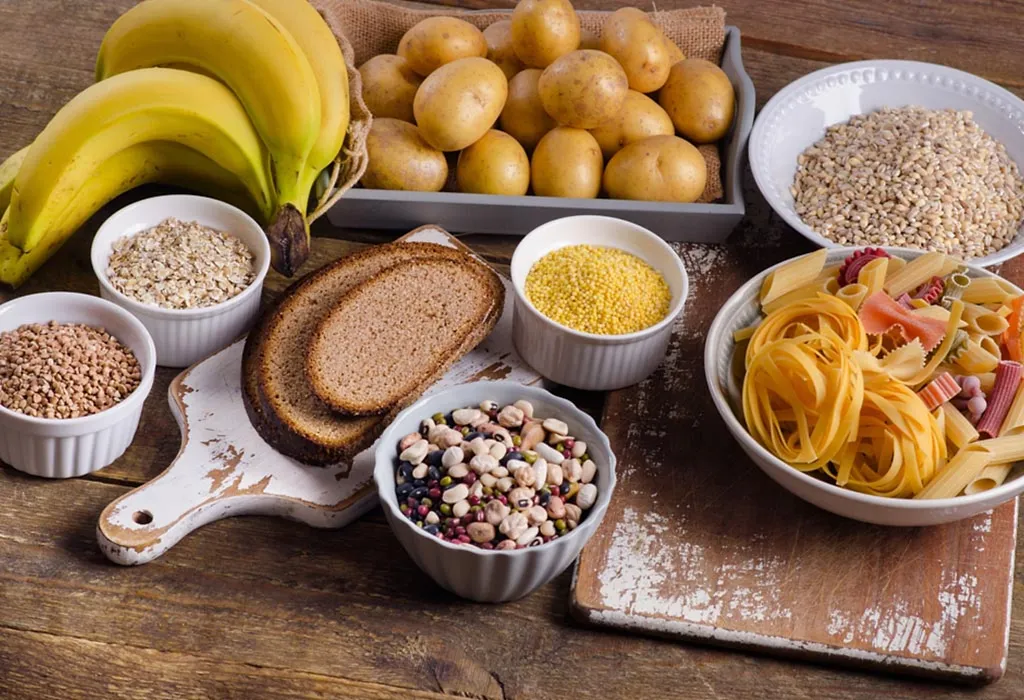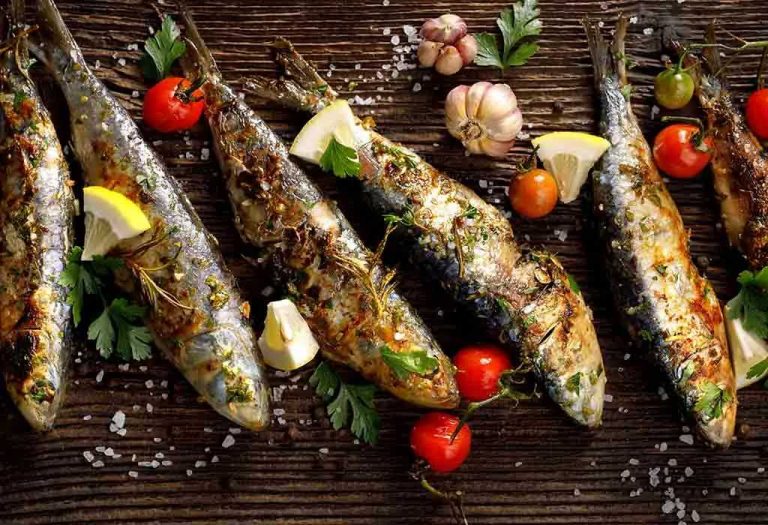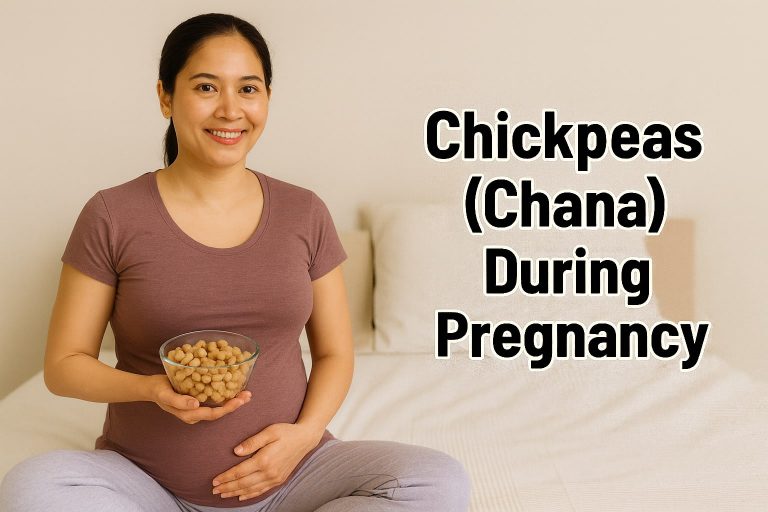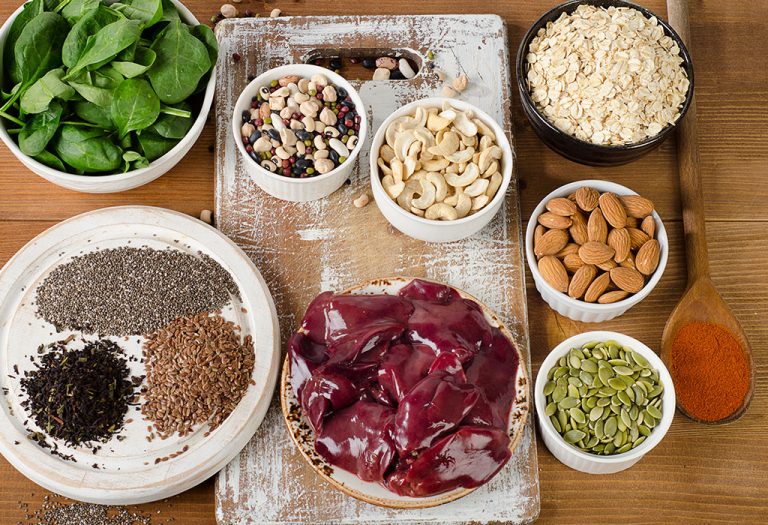Third Month of Pregnancy Diet (9-12 Weeks)

Being pregnant is a beautiful time, but with it come certain responsibilities and lifestyle changes that are crucial for the growth and development of the baby, as well as the health and safety of the mother. The third month of pregnancy (9-12 weeks) can be a difficult time for the mother-to-be, as the morning sickness, fatigue, and mood swings increase tremendously. This is also the time when the most number of miscarriages have been reported.
It is, therefore, essential for the mom-to-be to remain stress-free. She should also eat nutritious food to ensure the healthy growth and development of the baby. An expecting mother’s diet during the third month of pregnancy is crucial in determining the foetus’s health. This article focuses on 3rd month of pregnancy foods that are essential for this period.
Essential Nutrients for the Third Month of Pregnancy
During your third month of pregnancy, your dietary intake must increase by 300 calories over your regular intake. To do so, you must include the following in your diet during 3rd month of pregnancy:
- Fresh Fruits: 2-4 servings
- Dairy Products (Cheese, Milk, Yoghurt): 4 servings
- Vegetables: 4 servings
- Grain-based Food (Rice, Wheat, Oats, Quinoa, Bulgur, Barley, etc.): 6-11 servings
- Poultry and Meat: 2 servings
- Nuts: 1 serving
3rd Month of Pregnancy Diet – What Foods to Eat
Your pregnancy diet in the first trimester should provide all the nutrition the foetus needs to grow into a healthy baby. Are you wondering what to eat during the 3rd month of pregnancy to have a healthy baby? Here is a list of foods you should include in your 3rd-month pregnancy diet chart:
1. Vitamin B6-Rich Foods
In the third month, morning sickness may peak at week nine and may start decreasing by the end of week 12. Vitamin B6 helps combat nausea and vomiting (1). Vitamin B6-rich foods include lean meats, poultry, eggs, citrus fruits, legumes, soybeans, nuts, seeds, and avocados.
2. Folate-Rich Foods
Folate or folic acid is essential for adequately developing the baby’s brain and spinal cord (2). Even if you take folic acid supplements, including natural sources of folate-rich foods in your diet is good. Folate-rich foods include broccoli, citrus fruits, beans, peas, lentils, avocado, Brussels sprouts, okra, asparagus, and dark green leafy vegetables like spinach and kale.
3. Omega-3-Rich Foods
Omega-3 fatty acids are essential nutrients necessary for the baby’s healthy development of the eyes and brain (3). Foods rich in Omega-3 fatty acids are soybeans, canola oil, walnuts, chia seeds, flaxseeds, salmon, mackerel, sardines, and wild rice.
4. Fresh Fruits
Fruits contain many nutrients and antioxidants for the baby’s healthy growth and development. Fresh fruits are a better source of nutrients than fruit juices and canned or frozen fruit. Include plenty of muskmelons, avocados, pomegranates, bananas, guava, oranges, sweet limes, strawberries, and apples (4).
5. Vegetables
Healthy food for a 3-month pregnant lady should include at least 3 cups of vegetables per day. Choose different coloured vegetables and mix them to ensure you get a wide range of nutrients and tastes. Examples include kale, spinach, broccoli, sweet potatoes, tomatoes, carrots, pumpkin, bell peppers, corn, eggplant, cabbage, drumstick, etc (5).
6. Carbohydrates
Carbohydrates are an essential energy source for our bodies. Complex carbohydrates are found in foods like whole grains and legumes, pasta, bread, rice, and starchy vegetables like potatoes and sweet potatoes, which are suitable for the body and provide steady energy. Simple carbohydrates from natural sources like fruits and vegetables that contain fibre are also good for your growing baby. Avoid simple carbs like refined flour and processed foods such as cookies and cakes. These empty calories are bad for the baby (6).
7. Proteins
Proteins are the building blocks of DNA, tissue, and muscles. They also play an important role in triggering enzymes in our bodies. Proteins are, therefore, essential for the proper development of the foetus. Protein-rich foods include legumes, quinoa, seeds, lentils, chicken, nuts, nut butter, meat, and soybeans (7).
8. Dairy
Dairy products are an excellent source of calcium, which is very important for developing strong and healthy bones. Examples include milk, yoghurt, and hard cheeses. If you are allergic to dairy, other sources of calcium-rich foods are kale, watercress, and sardines (8).
9. Vitamin D
Vitamin D is essential in developing the immune system, healthy teeth and bone development, and healthy cell division in the baby. Vitamin D-rich foods include fatty fish like salmon, mackerel, tuna, egg yolk, cod liver oil, and vitamin D-fortified milk or cereals (9).
10. Zinc
Zinc is an essential mineral that is important for the development of a healthy immune system and nervous system (10). Zinc-rich foods include beef, spinach, wheat germ, mushrooms, oysters, lamb, pumpkin and squash seeds, chicken, nuts, and beans.
Foods to Avoid During the Third Month of Pregnancy
These are the foods that should be avoided in the third month of pregnancy:
1. Seafood
Seafood and ocean fish contain high levels of methyl-mercury that cause impaired brain function in the foetus (11). So, avoid seafood and stick to freshwater fish.
2. Raw Eggs and Unpasteurised Dairy Products
Raw eggs can contain salmonella bacteria, which can cause food poisoning. Unpasteurised dairy products like soft cheeses can contain listeria bacteria, which can cause severe food poisoning. Hence, ensure your eggs are cooked and stick to hard cheeses (12).
3. Raw or Undercooked Meats
Raw and undercooked meats can contain bacteria that cause food poisoning and severe damage to the growing baby (13).
4. Vitamin A
Excessive amounts of vitamin A have been linked to congenital disabilities (14). Vitamin A in natural foods like fruits, vegetables, eggs, and milk is not harmful. However, chicken, beef, and veal liver contain high amounts of vitamin A. It is better to avoid these to ensure you do not get too much vitamin A at once. Also, avoid taking vitamin A supplements.
5. Caffeine
Caffeine in coffee, tea, and aerated drinks can cross the placenta and cause an increased heart rate in the baby (15). So, it is better to limit or avoid caffeine.
6. Street Food
Eating street food increases the chances of getting bacterial infections such as gastroenteritis. Such infections will harm the developing baby. Hence, it is best to avoid it (16). If you crave street food, try making the dish at home using fresh ingredients.
7. Canned Foods
Canned foods contain high amounts of preservatives, which can harm foetal development. They also contain a chemical called bisphenol-A (BPA), which has been linked to an increased risk of miscarriages (17). Hence, avoid canned or tinned food and eat homemade food cooked with fresh produce.
3rd Month Pregnancy Diet Tips
- Stay Hydrated by drinking plenty of water. You can also have juices and soup, but water is best for hydration.
- Include at least five portions or servings of fruits and vegetables daily.
- Eat 5 to 6 healthy, smaller meals daily rather than three large meals.
- Avoid alcohol, tobacco and drugs altogether, as these can cause severe congenital disabilities and developmental issues in your baby.
- Take your doctor-prescribed nutritional supplements without fail.
- Avoid modifying your diet without checking with your doctor first.
Supplements That You Can Take During 3rd Month of Pregnancy
To supplement your diet and nutritional needs, you can take the following supplements based on the guidance given by your doctor or a certified pregnancy nutritionist. The following dosages are suggested – consult your doctor for your specific requirements:
- Calcium: 300 mg
- Vitamin D: 400 IU
- Vitamin C: 70 mg
- Vitamin B12: 6 mcg
- Vitamin E: 10 mg
- Zinc: 15 mg
- Iron: 17 mg
- Folic Acid: 400 mcg
- Riboflavin: 2 mg
- Thiamin: 3 mg
- Niacin: 20 mg
The third month of pregnancy can be challenging as nausea and vomiting may peak at this time. However, morning sickness starts to lessen by week 12 and is usually gone by the start of the second trimester. Follow the diet tips in this article to provide the necessary nutrition and encourage your baby’s healthy growth and development.
FAQs
1. How much weight should you expect to gain during the third month of pregnancy?
Weight gain during pregnancy varies from person to person and is related to their Body Mass Index (BMI). During the third month of pregnancy, women might gain between 1.1.5 kgs. However, this may vary based on preexisting physical or medical conditions.
2. Are there any common food allergies you can experience during the 3rd month of pregnancy?
While certain foods are recommended during the 3rd month of pregnancy, it is vital to avoid them or look for alternatives if you suffer from lactose intolerance, nut allergies, citric acid intolerance, or allergies to certain fruits or vegetables.
3. Are there any vegan options to meet your increased nutritional needs during the third month of pregnancy?
Some beneficial vegan options during the third month of pregnancy include soya products, lentils, beans, peas, grains, nuts, fruits, vegetables, and seeds.
References/Resources:
1. Natural Sources of Vitamin B During Pregnancy; American Pregnancy Association; https://americanpregnancy.org/healthy-pregnancy/pregnancy-health-wellness/natural-sources-of-vitamin-b-during-pregnancy/
2. Coletta, J.M., Bell, S.J., and Roman A.S.; Omega-3 Fatty Acids and Pregnancy; Rev Obstet Gynecol; https://www.ncbi.nlm.nih.gov/pmc/articles/PMC3046737/; 2010
3. Nutrition During Pregnancy; Johns Hopkins Medicine; https://www.hopkinsmedicine.org/health/wellness-and-prevention/nutrition-during-pregnancy
4. Amezcua-Prieto, C., Martinez-Galiano, J.M., Cano-Ibáñez, N., et al.; Types of Carbohydrates Intake during Pregnancy and Frequency of a Small for Gestational Age Newborn: A Case-Control Study; Nutrients; https://www.ncbi.nlm.nih.gov/pmc/articles/PMC6471256/; February 2018
5. Pérez-López, F.R., Pilz, S., and Chedraui, P.; Vitamin D supplementation during pregnancy: an overview; Curr Opin Obstet Gynecol; https://pubmed.ncbi.nlm.nih.gov/32487800/; October 2020
6. Chaffee, B.W. and King, J.C.; Effect of Zinc Supplementation on Pregnancy and Infant Outcomes: A Systematic Review; Paediatr Perinat Epidemiol; https://www.ncbi.nlm.nih.gov/pmc/articles/PMC3787719/; July 2012
7. Pregnancy week by week; Mayo Clinic; https://www.mayoclinic.org/healthy-lifestyle/pregnancy-week-by-week/in-depth/pregnancy-and-fish/art-20044185
8. Taylor, M. and Galanis, E.; Food safety during pregnancy; Can Fam Physician; https://www.ncbi.nlm.nih.gov/pmc/articles/PMC2920771/; August 2010
9. Foods to Avoid During Pregnancy; American Pregnancy Association; https://americanpregnancy.org/healthy-pregnancy/pregnancy-health-wellness/foods-to-avoid-during-pregnancy/
10. Bastos-Maia, S., Rolland-Souza, A.S., Costa-Caminha, M.F., et al.; Vitamin A and Pregnancy: A Narrative Review; Nutrients; https://www.ncbi.nlm.nih.gov/pmc/articles/PMC6470929/; March 2019
11. Qian, J., Chen, Q., Ward, S.M., Duan, E., and Zhang, Y.; Impacts of Caffeine during Pregnancy; Trends Endocrinol Metab; https://www.ncbi.nlm.nih.gov/pmc/articles/PMC7035149/; December 2019
12. Rane, S.; Street Vended Food in Developing World: Hazard Analyses; Indian J Microbiol; https://www.ncbi.nlm.nih.gov/pmc/articles/PMC3209856/; Jan 2011
13. Braun, J.M., Kalkbrenner, A.E., Calafat, A.M., et al.; Variability and predictors of urinary bisphenol A concentrations during pregnancy; Environ Health Perspect; https://pubmed.ncbi.nlm.nih.gov/21205581/; Jan 2011
Also Read:
2nd Month of Pregnancy Diet
Diet for 4th Month of Pregnancy
Diet for Fifth Month of Pregnancy
Was This Article Helpful?
Parenting is a huge responsibility, for you as a caregiver, but also for us as a parenting content platform. We understand that and take our responsibility of creating credible content seriously. FirstCry Parenting articles are written and published only after extensive research using factually sound references to deliver quality content that is accurate, validated by experts, and completely reliable. To understand how we go about creating content that is credible, read our editorial policy here.





































